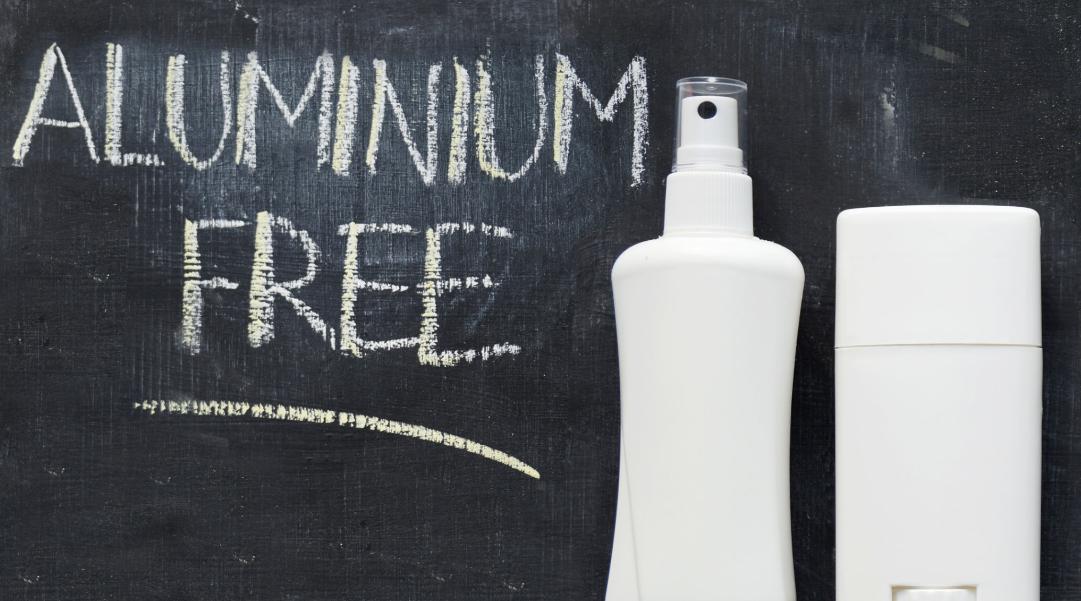Aluminum refers to a common chemical element and material with different uses. We can find this compound in household necessities, paints, medicines, vaccines, lighting fixtures, paper, ceramics, glass, propellants, and heat-resistant fibers.
Aluminum substances are also used in artificial coloring, baking powder, and soy-based infant milk (in certain cases). Studies show the human body does not need this compound compared to vitamins and minerals.
Research shows aluminum in its normal form does not pose any impairment to our body organs or skin. It remains as part of the earth’s crust and as explained earlier utilized for a variety of products like tin cans and aircraft. Nonetheless, this substance liquefied in water along with those incorporated in cosmetics can be poisonous in high doses. It is important to read on, so you get more relevant information about aluminum and skincare.
Effects on the Skin
Anti-perspirants contain aluminum that can generate chemical reactions because of sweat and clog the seat glands. The likely outcome is irritation in sensitive areas of the underarms that ultimately leads to itching, acne, and dermatitis or skin inflammation. If this happens, stop using the anti-perspirant and see a dermatologist right away.
Aluminum by itself does not pose health hazards. However, compounds and ions the skin absorbs may cause problems if the concentration is high. Patients with kidney ailments are the most likely to suffer potential health complications because of their low absorption rate. Toxicity also produces deficiencies in calcium, Vitamin D, nerve damage as well as cases of breast cancer and Alzheimer’s disease.
Cigarette smoking and alcoholic drinks are detrimental because these damage lung functions, aluminum attacks the central nervous system. According to experiments as well as reviews, toxic metals impact brain maladies by generating oxidative stress.
There are other known effects of aluminum such as the following:
- Oxidative Stress on body cells that damage the DNA and cause cell aging. This type of stress indicates an imbalance between the biological system’s capacity for detoxification and manifestation of reactive oxygen species.
- It gathers in bone tissues and wakens them possibly resulting in osteoporosis.
- Aluminum eliminates calcium, iron, and magnesium which accumulate in the brain. Trace aluminum levels overlap capillaries that transport blood to the brain and amass in big neurons of brain parts susceptible to Alzheimer’s disease.
- Aluminum can cause granulomas or granulation tissues produced as reaction to swelling of presence of any foreign substance.
- The chemical can cause abdominal pains and constipation.
- There are also side effects which include fatigue, weak muscles, extreme drowsiness, pain while urinating, and black stool.
Aluminum and Anti-Perspirants
Majority of anti-perspirant concerns involve the active ingredient, an aluminum-based composite that clogs the sweat ducts temporarily and prevents a person from sweating. These skincare products are generally mixed with deodorants with pleasant scent and averts unpleasant odor. Several scientific studies during the past few years speculated that antiperspirants with aluminum promote risks for breast cancer.
Authors of said research claim many breast cancers develop at the upper and pouter portion of the breast. This is the part nearest the armpit where the such liquids are applied. The research suggests the chemicals which include aluminum are absorbed by the skin.
Chemicals interact with the Deoxyribonucleic acid, a self-replicating compound present in almost all living organisms as the principal constituent of chromosomes. This interaction produces cancerous changes in human cells or disturb the actions of estrogen hormones that affect the development of breast cancer cells.
What is the Bottom Line?
Our goal therefore is to reduce exposure to aluminum. Aluminum is among the most plentiful metals on earth. The compound penetrated mainstream products to a certain extent that It has become impossible to avoid exposure completely. Nevertheless, it is possible to take precautions to minimize exposure. For example, but and use glass cookware rather than aluminum.
Keep away from hygiene products such as antacids and deodorants with aluminum hydroxide. Use natural substitutes instead. Refrain from consuming processed and frozen foods since their containers can have aluminum. On the contrary, choose fresh as well as organic fruits and veggies. Settle for foods with responsible packaging. If toxic metal exposure is important to you, consider performing a so-called toxic metal cleansing procedure which may require detoxification known as chelation.


Leave a Reply